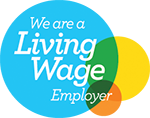
Freelance and Research Officer Tony Lennon
Posted by BECTU Communications on 31 October 2018
BECTU’s Freelance and Research Officer Tony Lennon sets out what the key points of the chancellor’s budget could mean for freelance members.
IR35 (off-payroll working)
In a bid to prevent people from using personal service companies (PSCs) to tax-dodge, the government will shift liability for unpaid employment taxes from PSCs to the engager.
We know that there is no serious problem of tax avoidance through PSCs amongst BECTU’s members. The change in liability is likely to lead to many freelancers in film, TV and theatre being wrongly classified as employees, preventing them from recovering legitimate business expenses such as travel, subsistence and consumables.
When the public sector saw an identical change last April, it brought disruption despite most affected organisations having legal and HR support. People working through PSCs and long-established self-employed sole traders were wrongly categorised as PAYE employees by HMRC’s online employment status checker, and we fear freelancers will face these same errors.
Although small production companies will be exempt from the change in 2020, it is likely that a shortage of back-office technical support in larger organisations will mean incorrect decisions about the employment status of freelance members, with many finding they have to pay full employment tax while gaining no employee benefits.
Tax relief on freelance training costs
The chancellor has missed an opportunity to bring relief on self-employed training costs in line with employees. While companies offering any kind of training to employees can classify the expenditure as a business expense, freelancers paying for their own training can only offset the cost against tax if the course is intended to enhance or update existing skills.
The failure to offer tax relief for freelancers who seek training for new skills will be a disincentive for many to expand the range of services they can offer clients.
National insurance for the self-employed
Although the rate of Class 4 national insurance contributions (NIC) remains at 9% of banded earnings, some higher paid freelancers will pay significantly more. The Upper Profits Limit will be increased in April 2019 from £46,350 to £50,000, raising total NIC for anyone earning above this level by £230 per year.
Class 2 NIC will continue to be paid "for the life of this parliament", meaning self-employed workers continue to qualify for contributory benefits like the state pension by paying £3 a week from April 2019, even if they are below the Small Profits Threshold of £6,365 a year.
VAT and late payment penalties
The Budget did not bring a predicted reduction in the current £85,000 annual turnover threshold for compulsory VAT registration, meaning the bulk of BECTU sector freelancers can remain outside the VAT regime if they wish.
Changes last year to the flat-rate VAT Scheme, which many BECTU members once used, have made registration less attractive, and a reduction in the threshold could have put a heavy administrative burden on freelancers with no real benefit. HMRC is planning to introduce a points-based system for late filing of VAT from April 2020, and may extend it to Income Tax Self Assessment returns after that.
Finally, there is a change for employees who receive HMRC-approved scale rate payments for meals away from the workplace, removing the obligation on employers to check receipts to ensure food was actually purchased.
A version of this article first appeared in Broadcast magazine.
Comments
Sorry, comments are not currently enabled for this post.

